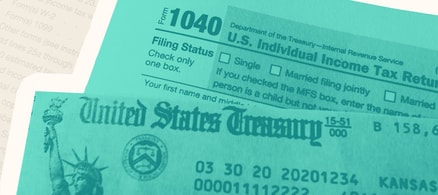Tax cuts coming to an end
The TCJA introduced many favorable tax changes with sunset clauses. Take note of these four provisions that could come to an end.
Income tax rates
Before the TCJA was introduced, the Internal Revenue Code had seven income tax rates for individuals, heads of households and married couples filing a tax return, based on where their taxable income fell: 10%, 15%, 25%, 28%, 33%, 35% and 39.6%.
The TCJA lowered five out of those seven, so that the current list is as follows: 10%, 12%, 22%, 24%, 32%, 35% and 37%.
If Congress chooses not to act, the income tax rate for the affected brackets will revert back to their higher pre-2017 levels.
Standard deduction
The TCJA also nearly doubled the standard deduction in 2018 for all filers, with an inflation adjustment for each subsequent year. The 2023 limits have been set at $14,600 for single filers, $29,200 for joint filers and $21,900 for heads of households.
This has benefited U.S. taxpayers by flatly reducing the taxable incomes, leading to lower tax bills overall. It has also simplified the tax filing process by allowing many filers to claim the standard deduction instead of itemized deductions.
Federal estate and gift taxes
The TCJA raised the lifetime federal gift and estate tax exemption. Under current IRS rules, individuals can transfer a total of $12.92 million and married couples up to $25.84 million to beneficiaries without triggering federal estate taxes. After 2025, that tax exemption will be cut roughly in half, unless Congress agrees to an extension.
That means a taxable estate — which may consist of real estate, cash and securities, insurance, trusts, annuities, business interests and other assets — worth more than approximately $7 million for an individual or $13 million for a couple could be subject to federal estate taxes if you don’t plan ahead.
You can shrink the size of your taxable estate by giving away gifts while you’re still alive. Under the current tax law, you can give any number of beneficiaries up to $17,000 each year, or $34,000 for married couples, without triggering gift taxes or having it count toward your overall gift and estate tax exemption.
Charitable contributions
The TCJA increased the annual tax deduction limit for charitable contributions from 50% of a taxpayer’s adjusted gross income to 60%.
If Congress doesn't take further action, the tax deduction limit for charitable contributions would revert back to 50% in 2026.
Meet Your Retirement Goals Effortlessly
The road to retirement may seem long, but with WiserAdvisor, you can find a trusted partner to guide you every step of the way
WiserAdvisor matches you with vetted financial advisors that offer personalized advice to help you to make the right choices, invest wisely, and secure the retirement you've always dreamed of. Start planning early, and get your retirement mapped out today.
Get StartedWhat can you do to prepare?
These possible changes to the Trump-era tax breaks could really burn a hole in your finances if you’re not prepared — but there are some common tax planning strategies you can use to dodge some of that pain.
For instance, you may be able to accelerate some of your income so that you receive it before the tax rates (potentially) go up again in 2026.
To achieve this, you might consider deferring certain tax deductions to years with higher tax rates when they can provide a greater tax benefit. Also, if you’re planning to sell any investment assets, you could time your sale so that you realize capital gains in the next year or two with favorable tax rates.
Finally, if you’re self-employed or in a management or leadership position, you may be able to accelerate your income by timing your bonuses or compensation to receive them in years when the tax rates are lower — but this can depend on your employer.
If you’re approaching retirement, one of the best things you can do to manage your future tax liability is to convert some of your savings into a Roth IRA before the tax rates rise.
Unlike with tax-deferred accounts, contributions to Roth IRAs are taxable upfront — so you will receive a lump-sum tax bill on the conversion, but this will be at a lower rate than if you wait until 2026, according to Donnelly.
He told the Daily Mail: “If you save for retirement in a Roth now, you are essentially hedging against those higher tax rates in the future. This makes Roth IRAs the most powerful wealth building tool we have at our disposal at this point.”
If contemplating the end of the Trump-era tax breaks is causing you to sweat, just remember that taxes and tax strategies can be confusing. With potential changes lurking on the horizon for 2026, you may want to consider working with a tax professional who can help you to organize your finances and optimize your tax return.
Sponsored
Follow These Steps if you Want to Retire Early
Secure your financial future with a tailored plan to maximize investments, navigate taxes, and retire comfortably.
Zoe Financial is an online platform that can match you with a network of vetted fiduciary advisors who are evaluated based on their credentials, education, experience, and pricing. The best part? - there is no fee to find an advisor.







